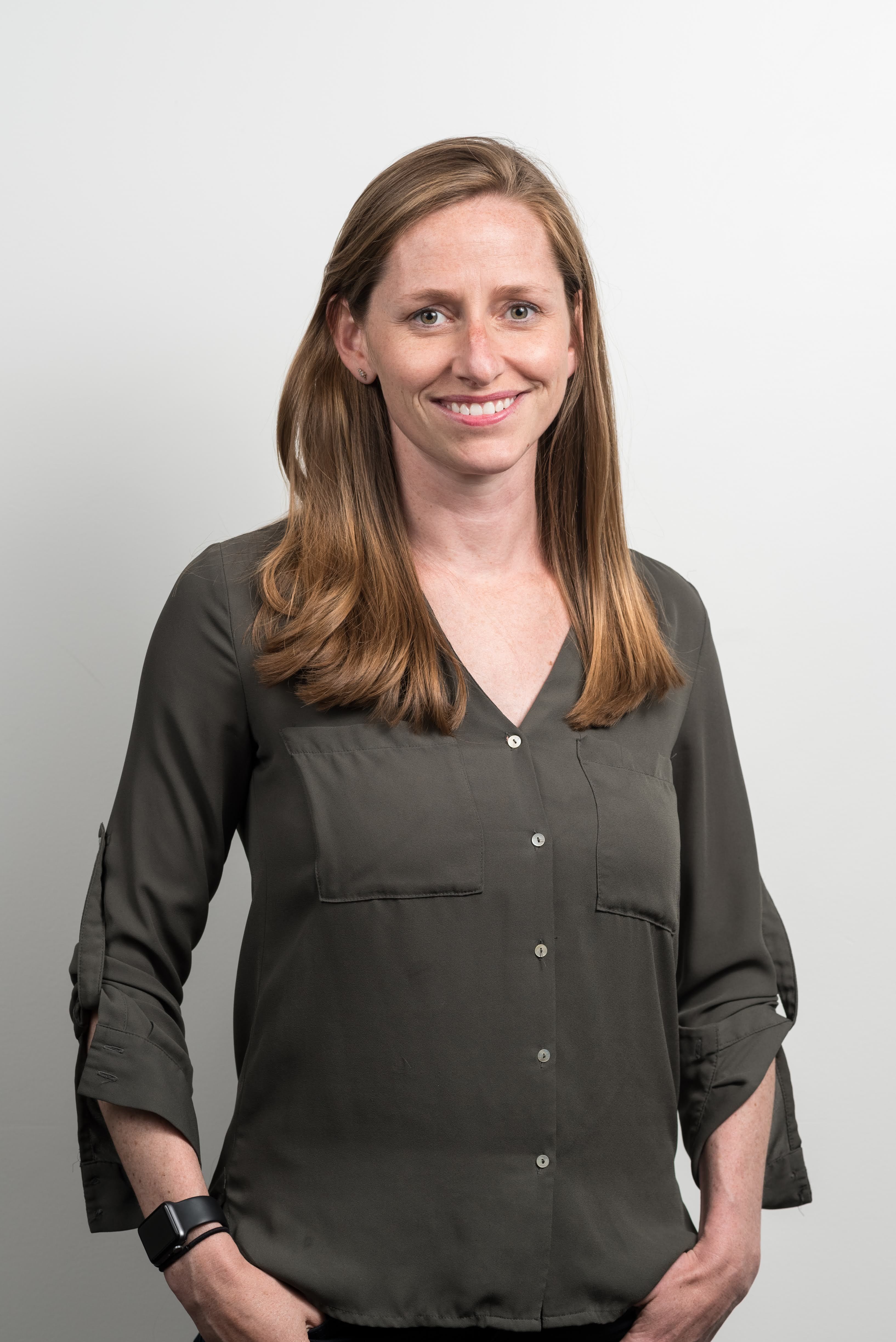City Spotlight: Boston
- Register for the free event here!
- Boston offers a world of advantages for startup founders
- Boston’s university-to-startup pipeline defies downturn to grow and diversify
Boston has had a thriving tech startup ecosystem for a while, but things can change fast. After setting records in 2021 as “Zoom investing” took off, how are local startups faring in 2023?
To find out, ahead of TC City Spotlight: Boston, an extended TechCrunch Live event during which you’ll get to hear from local leaders on how startups can take advantage of Boston’s extensive resources, we gathered insights from five investors active in the area.
It seems Boston is faring well, and part of the reason for that appears to be that remote pitching is still a trend. “Fundraising has changed significantly and founders at all stages are now taking many first meetings on Zoom,” said Russ Wilcox, a partner at Pillar VC.
Attend the TechCrunch City Spotlight: Boston event on February 27, 2023.
Register for the free virtual event here.
However, in-person gatherings have also made a return and are sometimes preferred. “In-person events have picked back up in Boston, particularly around the innovation hubs across campuses, so we expect more serendipity to come back into the equation,” said Underscore VC general partner Lily Lyman.
‘Serendipity’ accurately describes a lot of what’s going on in Boston’s tight-knit tech community. As our very own Brian Heater previously noted, startups are often located in “a five- to ten-block radius a stone’s throw from MIT (and, for that matter, Harvard).”
That also explains why Boston startups are associated with ‘tough tech’. “Boston, world-class universities and hard tech all go together,” said Sanjiv Kalevar, a partner at OpenView.
This combination is also arguably what makes Boston more resilient in the current downturn. According to Rudina Seseri, founder and managing partner at Glasswing Ventures, “Boston remains a vibrant startup and VC market in 2023 [ … ] Despite tough markets, a recessionary economy, and overall business pessimism, I am confident Boston will see a new wave of founders starting new companies.”
We spoke with:
- Rudina Seseri, founder and managing partner, Glasswing Ventures
- Lily Lyman, general partner, Underscore VC
- Sanjiv Kalevar, partner, OpenView
- Katie Rae, CEO and managing partner, The Engine
- Russ Wilcox, partner, Pillar VC
Rudina Seseri, founder and managing partner, Glasswing Ventures
How would you describe the pace of venture capital deal-making in Boston this year so far?
Boston remains a vibrant startup and VC market in 2023. The overall pace of funding has declined since 2021, but we are continuing to see high-potential companies and founders secure funding today.
We especially see this in the AI and security markets. Recent data published in the PitchBook-NVCA Venture Monitor shows that Boston had roughly the same share of the number of VC deals in the U.S. between 2021 and 2022, and we expect that trend to continue or improve in 2023.
For a Boston-based founder, does fundraising in 2023 still involve a lot of Zoom calls? Does it depend on which stage their startup is at?
We continue to use Zoom calls during our diligence process. They give us the opportunity to be efficient with a founder’s time and meet them where they are.

Having said that, it is a priority for us to meet in person when we can. The founder-investor relationship is a lasting one. We enjoy building close bonds with our founders while also giving them the opportunity to meet our building partners.
Have Boston-based tech workers been as affected by layoffs as their peers in the Bay Area?
Every corner of tech has been affected. Yet, despite tough markets, a recessionary economy and overall business pessimism, I am confident Boston will see a new wave of founders starting new companies.
Innovation shines the brightest in dark times, and it is in these times that transformative ideas are born. Among the technologists laid off from big tech companies recently, we expect many will find a fire in their bellies and build incredible products. Now is an excellent time for early-stage founders to implement their ideas.
Have in-person networking and startup community events in the Boston metropolitan area returned to pre-pandemic levels?
We have seen the number of events in the broader community tick up and are excited to keep bringing the community together as we head into the spring and summer. We host a wide range of ecosystem events, from networking for the AI and cybersecurity industries, to thought leadership sessions on making your first marketing hire. We will continue to push our ecosystem forward with gatherings at our office in the heart of Back Bay, around the area or online.
What link do you see, if any, between two of Boston’s strengths: “Tough tech” and university spinouts?
These are inextricably linked. Boston’s academic rigor is a critical ingredient in delivering the transformative technology that pushes our economy and society forward.
We work very closely with universities and research labs in the area (including, but not limited to, the MIT and Harvard ecosystems) and back leading founders building AI and frontier technology products for the enterprise and security markets.
What’s the most interesting Boston-based company you’ve invested in recently?
One of our latest investments is in FeatureByte, an AI startup founded by the team that built the backbone for DataRobot. FeatureByte is a platform built specifically for data scientists to simplify the creation, serving, managing and monitoring of machine learning features.
Are you open to cold pitches? How can founders reach you?
Yes, we are open to cold pitches, but prefer warm ones if a founder is able! We are looking for strong founders leveraging AI and frontier technology to build applications and infrastructure for the enterprise and security markets. My email is: rudina@glasswing.vc.
Lily Lyman, general partner, Underscore VC
How would you describe the pace of venture capital deal-making in Boston this year so far?
Looking across the data, it’s clear that the pace of venture deal-making in Boston slowed in Q3 and Q4 of last year, like everywhere else, as investors and founders were trying to get a sense of the market dynamics.
But thus far in Q1, we are seeing strong, high-quality investment opportunities at the earliest stage. It’s a great time to invest in early-stage startups. Great founders are starting businesses that are cash-efficient and thinking about business models from day one, which helps them attract strong talent at a more affordable rate, face less competition, acquire customers more affordably and solve big problems.
What has changed, particularly at the later stages, are the length and depth of diligence processes. We are no longer seeing the hasty timelines we saw in 2021. Late-stage investors are digging deeper into business fundamentals and projections. Price discovery is harder in this market and late-stage investors are afraid to overpay.
For a Boston-based founder, does fundraising in 2023 still involve a lot of Zoom calls? Does it depend on which stage their startup is at?
Fundraising in 2023 still involves a lot of Zoom calls, particularly for first meetings. Zoom provides both founders and investors the ability to have more meetings, creating more opportunities for finding the right match.
As seed-stage investors, the further into our process a founder is, the more likely it is that we’re asking for in-person meetings. Early-stage investing is fundamentally a people business and there is no substitute for face-to-face connection and judgment.
While we have made investments without meeting the founders in person over the past three years, we expect that to be rarer given the opportunity to meet face to face.
In-person events have picked back up in Boston, particularly around the innovation hubs across campuses, so we expect more serendipity to come back into the equation.
Have Boston-based tech workers been as affected by layoffs as their peers in the Bay Area?

Not all industries are equally impacted by an economic decline and Boston is home to a diversity of sectors, including enterprise software, cyber security, digital health and biotech, many of which won’t feel as deep an impact.
I’d venture to guess that layoffs have been roughly equivalent between Boston and the Bay Area if you correct for sector. Bay Area layoffs get more coverage in the press and the cuts there may be deeper to match the overhiring that happened in 2021 and 2022.
Have in-person networking and startup community events in the Boston metropolitan area returned to pre-pandemic levels?
I’d say Boston’s in-person startup community events have returned to about 75% of pre-pandemic levels. I’m seeing the community being more intentional about the format of their events, opting for in-person, virtual or hybrid based on the nature of the interaction intended.
Virtual event platform Goldcast, a portfolio company of ours, has observed an uptick in virtual events as the economy declines, as many companies have benefited from higher ROI on these engagements.
We are also seeing a trend towards deeper, more meaningful engagements and relationship-building instead of broad, huge events.
Are Boston-based construction-related startups similar enough that they fall under one umbrella or does it make more sense to classify them into categories such as climate tech and robotics?
We look at construction-related startups that look like vertical SaaS, workflow management or insurtech/fintech opportunities (less so on climate or robotics).
Robotics requires heavy investment, but it also has the potential to save costs. In this macroeconomic climate, is now a good time for Boston startups to pitch B2B robotics-based solutions to other companies?
Boston has always had a strong robotics industry. In this environment of cost savings, there’s an even stronger case for the ROI that RPA and robotics can deliver.
What link do you see, if any, between two of Boston’s strengths: “Tough tech” and university spinouts?
There is a clear correlation between Boston’s strength in tough tech and the concentration of academic institutions here. One of the key ingredients of a great innovation ecosystem is a concentration of research and development that is injected into commercialized products, which Boston has in spades.
There is more talent and research concentrated in a seven-mile radius here than anywhere else on the planet. Institutions throughout the city and the on-campus funds powering entrepreneurship on campus are in place to ensure that students and researchers’ ideas can turn into profitable ventures.
What’s the most interesting Boston-based company you’ve invested in recently?
At the early stage, I’m particularly excited about Herald, which provides digital infrastructure for commercial insurance. The founding team are experienced operators from At Bay, and we met while they were at Harvard. They are solving a huge pain point for carriers and brokers, have hired well and are growing quickly. They recently were recognized as “Seed Company of the Year” in Boston at the NEVYs.
Are you open to cold pitches? How can founders reach you?
We receive and are receptive to cold pitches, but we admire founders who create an opportunity for a warm introduction. Our Core Community of more than 1,800 entrepreneurs, seasoned executives and rising stars is a great place to start. We set aside carry to be allocated to core members, too. Around 60% of our portfolio investments have been sourced through this community.
Is there anything we didn’t ask about that you want to comment on?
An important piece of a thriving startup ecosystem is founders who spin out from large tech companies to start their own thing. This “mafia” behavior is a big part of what made the Bay Area what it is today.
Boston increasingly has its own version of this effect, starting with the Endeca mafia (whose early team members have gone on to found Toast, Salsify, Jellyfish, Parallel Wireless and others). We are now seeing the next generation of Boston company mafias be formed, with founders coming out of Hubspot, Toast, Drift, Klaviyo, Flywire and DataRobot. We are excited to see this dynamic continue and combined with the rise of angel investing from experienced operators, we remain bullish on the Boston ecosystem.
Sanjiv Kalevar, partner, OpenView
How would you describe the pace of venture capital deal-making in Boston this year so far?
So far this year, 2023 is off to a faster start and shaking off some of the cobwebs from the back half of last year. We’re a far cry away from 2021, but that’s probably a good thing overall.
For a Boston-based founder, does fundraising in 2023 still involve a lot of Zoom calls? Does it depend on which stage their startup is at?
Our office is alive and well and back in the swing of things full time. Any founders are more than welcome to visit for first meetings, closing meetings or anything in between! This is for any startups within our investment coverage at the expansion stage: typically Series A, B and C rounds.

Have Boston-based tech workers been as affected by layoffs as their peers in the Bay Area?
Yes, there have been layoffs at Boston tech companies, especially larger ones. However, many of the layoffs have not been due to the fundamentals of many businesses but due to overzealous hiring during the run up in late 2020 and 2021.
Due to Boston and the East Coast’s largely less overzealous nature, I expect to see that Boston companies will have comparatively fewer layoffs than their counterparts in the Bay Area. According to one crowdsourced layoff tracker, Layoffs.fyi, Boston had about 10,000 layoffs since COVID-19, compared to over 10 times that in the Bay Area.
Are Boston-based construction-related startups similar enough that they fall under one umbrella or does it make more sense to classify them into categories such as climate tech and robotics?
We would classify construction tech as anything related to the building of new properties or other real estate assets. There could be some overlap with climate tech or robotics, but by and large, I think of those categories as largely distinct.
Robotics requires heavy investment, but it also has the potential to save costs. In this macroeconomic climate, is now a good time for Boston startups to pitch B2B robotics-based solutions to other companies?
Anything saving costs will be received well in this economic climate. We are seeing interesting hardware-as-a-service models, which can further improve the chances of selling robotics solutions to other companies by reducing upfront customer spend via a subscription.
What link do you see, if any, between two of Boston’s strengths: “Tough tech” and university spinouts?
Boston, world-class universities and hard tech all go together. The academic institutions put out tons of amazing technical talent going after hard problems, which is very rare across the U.S.
What’s the most interesting Boston-based company you’ve invested in recently?
OpenView invested in a Boston-based Kintent last year. It is a trust management platform with a largely remote team. The CEO, Sravish Sridhar, is based in Boston.
[Editor’s note: Kintent just changed its name and is now known as TrustCloud.]
Are you open to cold pitches? How can founders reach you?
Yes, of course. Email me at: sanjiv@ov.vc.
Katie Rae, CEO and managing partner, The Engine
How would you describe the pace of venture capital deal-making in Boston this year so far?
Fundraising has certainly slowed since peaking post-pandemic in the broader markets. We do a lot of investing in climate and advanced systems and I would say those markets are still moving.
Specifically for the Boston environment, where startups commonly stem from university labs and our rich healthcare ecosystem, “tough tech” founders will see less of an impact on the pace of deal-making as the companies they are creating are addressing important societal needs.
For a Boston-based founder, does fundraising in 2023 still involve a lot of Zoom calls? Does it depend on which stage their startup is at?
We are an early-stage investor, and face time is still important in first check investments. We continue to have many Zoom meetings — it has become standard in our new remote-first business climate — but we’re delighted that our in-person meetings have increased. We are looking at relationships that will span more than 10 years. It’s best to get to know the founders.
Have Boston-based tech workers been as affected by layoffs as their peers in the Bay Area?
I read a statistic the other day that said nearly 100,000 tech workers globally have been laid off since the beginning of 2023. That’s just two months, so that number is both staggering and sobering. One of Boston’s key industries is technology, so we have not been immune.

However, in our specific area, the startups we’ve backed are hiring and always looking for talent.
Have in-person networking and startup community events in the Boston metropolitan area returned to pre-pandemic levels?
We’re not quite at pre-pandemic levels, but there’s been a hopeful uptick. People are still cautious about large gatherings, but there is certainly an appetite to be in person to make new introductions and exchange ideas.
As an example, our annual Tough Tech Summit moved to virtual, then hybrid during the pandemic. Last October, we brought it back in-person and more than 500 founders, investors and academics came.
And in the fall, we held a tough tech talent fair and 237 job seekers gathered to learn about opportunities at 34 different Boston-based companies.
Earlier this month, we hosted the final presentations for our Blueprint program. With 88 teams in this cohort, the day brought together over 200 individuals.
We see this as a positive sign that networking is on the upswing.
Robotics requires heavy investment, but it also has the potential to save costs. Is now a good time for Boston startups to pitch B2B robotics-based solutions to other companies?
Robotics is essential to how most businesses will run. I think innovation in that area is important and investable.
What link do you see, if any, between two of Boston’s strengths: “Tough tech” and university spinouts?
I really believe the two cannot be decoupled. Technical and scientific breakthroughs are the pulse of university labs.
What’s the most interesting Boston-based company you’ve invested in recently?
We have so many interesting companies it would be impossible to choose, particularly with some very early stage and still in stealth.
But, here is what a few of our MIT spinouts are doing:
- Pioneering the use of a fundamentally new material for carbon capture: molten salts that operate best at the high temperatures found inside boilers, kilns and furnaces.
- Building a biomaterials product development platform to bridge the gap between editing genes and totally replacing them.
- Generating the wood and forest products we need without cutting down a single tree.
- Decarbonizing gas separations to eliminate one gigaton of carbon emissions per year.
Are you open to cold pitches? How can founders reach you?
We are open to cold pitches for breakthrough ideas. However, generally speaking, a majority of our investments originate in a lab at a university, where they have had a technical breakthrough with papers published and patents filed, so we can look at those for information as well.
Is there anything we didn’t ask about that you want to comment on?
My advice for Boston founders seeking investment: be organized, know who you are pitching to and understand who the investor is and how they see the world. It’s incredibly important to do your homework, ask where they are in the fund and know what bets they are making.
And, make a real connection. Trust factors into investment decisions. Know how we think and who we back. The best way to be introduced is through other trusted investments.
Russ Wilcox, partner, Pillar VC
How would you describe the pace of venture capital deal-making in Boston this year so far?
We continue to see many early-stage opportunities and we are investing at our normal pace. For Series B and beyond, however, the venture market has slowed considerably and portfolio companies are adjusting to extend their runways.
For a Boston-based founder, does fundraising in 2023 still involve a lot of Zoom calls? Does it depend on which stage their startup is at?
Fundraising has changed significantly and founders at all stages are now taking many first meetings on Zoom.
But we would always encourage founders to start in person if they can. We encourage later-stage CEOs in Boston to plan several trips to CA and NY to expand the pool of investors.
Have Boston-based tech workers been as affected by layoffs as their peers in the Bay Area?
It is similar on both coasts because the capital markets are the cause. When interest rates were zero, growth was rewarded richly and so most tech companies plowed cash into growth. Now, interest rates are higher and margins matter more, so startups are easing off the gas.

That is why many late-stage or mature tech companies held a 5%-20% layoff at the start of the year. Seed-stage startups can’t really reduce much as they still have to build a product, but they may delay hiring their commercial team.
Have in-person networking and startup community events in the Boston metropolitan area returned to pre-pandemic levels?
Generally, yes. We are fully open and hosting and attending events. But with hybrid work, it could be some time before we see the downtown areas return to their former vitality.
Are Boston-based construction-related startups similar enough that they fall under one umbrella or does it make more sense to classify them into categories such as climate tech and robotics?
The construction sector is still learning and experimenting with both climate tech and robotics, but for different reasons.
The climate tech opportunity is driven by demand from architects and their customers to design appealing buildings and has been amplified recently by funding in the Inflation Reduction Act. The interest in robotics is mostly about how to solve labor shortages.
Robotics requires heavy investment, but it also has the potential to save costs. In this macroeconomic climate, is now a good time for Boston startups to pitch B2B robotics-based solutions to other companies?
Yes. This economy is favorable for B2B robotics products that have a fast payback because companies are less focused on sales and more focused on margin in the face of growing labor expenses. On the other hand, it can be a hard time to get attention for highly novel products.
What link do you see, if any, between two of Boston’s strengths: “Tough tech” and university spinouts?
Breakthrough innovations in deep technology are quite often based on university research and that is why Boston is well positioned in this sector.
What’s the most interesting Boston-based company you’ve invested in recently?
Hard to pick just one! Last quarter, we invested in technology companies revolutionizing how clothes are made, designing super-fast drones and expanding youth activity centers. We also invested in biology companies tackling sudden-death cardiac arrest, longevity, dementia and infertility.
Are you open to cold pitches? How can founders reach you?
Anyone can send me a seed-stage deck at russ@pillar.vc. Most of the companies I back are commercializing some sort of breakthrough innovation.
Is there anything we didn’t ask about that you want to comment on?
This is the perfect time to start a company. The VC market is down slightly, but it’s still near historic highs. Plenty of tech talent is available right now. Look past the macroenvironment and focus on the microenvironment: Can you start a spark with your first few customers? If you think you can, get out there and start building.































Comment